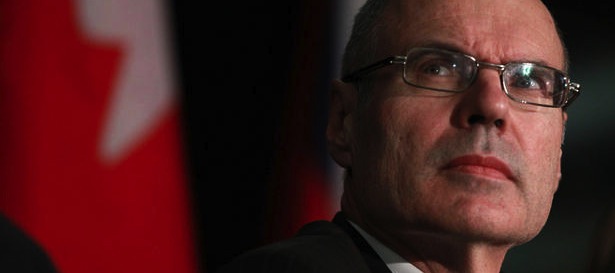
5 Questions for Don Drummond: on carrots, sticks and creating a critical mass of consensus
“If you put two economists in a room, you get two opinions, unless one of them is Lord Keynes, in which case you get three.” So said Winston Churchill. So what happens when you put 12 leading economists in a room and ask them to focus on one of the biggest challenges of our time: growing economic and environmental prosperity in Canada? You get Canada’s Ecofiscal Commission. This Commissioner blog series gives you a glimpse into the diverse personalities and perspectives behind our work — and what it takes to wrestle through the big issues together.
- You have an impressive résumé: university professor, senior vice-president and chief economist at TD Bank, associate deputy minister at Finance Canada. What particular experience do you think is going to be most valuable in your role as commissioner?
I’ve had the great fortune to have been involved in virtually every major economic reform that’s taken place in Canada: the Free Trade Agreement, the tax reform of 1988, the introduction of GST in 1991, the deficit reduction exercise in the mid-1990s and the reform of the Canada Pension Plan. Now, working in an academic surrounding, I’ve gone back and observed what worked and what didn’t work, and what conditions needed to be in place in order for the politicians or the public to be comfortable with major policy reforms.
- What are some of the key lessons that you’ve drawn?
First, you can’t get anywhere until there’s acceptance that there’s a problem. That has been a major impediment for the environment because we’ve been hopelessly bogged down by this debate: “is climate change for real or not.” I think that has shifted in the last few years. The science has become firmer and more and more people are just observing it themselves.
You also need some sort of critical mass of analysts and credible spokespeople that agree on some kind of approach. If everybody is just fighting everybody else, the public will tune out and the politicians won’t take a chance in that kind of environment. It doesn’t mean that everybody has to agree — that was never the case. But a critical mass of people has to say “here’s an appropriate way to go forward.” That’s missing in the environment field.
- Speaking broadly, where do you see the carrot approach — things like ecofiscal policies — being more useful versus the stick approach of regulations?
In some aspects of an environment, regulation may be an efficient mechanism. For example, on cars, I think the regulatory approach is perfectly satisfactory. But I think to a large degree it can be done through the carrot approach. Until fairly recently at TD Bank, the individual business units weren’t charged for office space costs. So no one had an incentive to be efficient. Well, we decided we’re going to charge everybody. Bang! Everything changes.
- What excites you the most about the launch of the Ecofiscal Commission?
A chance to bring some objective analytical perspective on the environment challenge and sensible policy approaches for going forward. To inform the public and the politicians and contribute to building some critical mass of analysis that people and policy makers are going to agree with.
- What do you hope to achieve through the Ecofiscal Commission?
Ultimately that Canada will embrace a sensible set of policies for addressing the environment that are compatible with a strong economy. But I would view the exercise as a success if an informed discussion got put on the Canadian table. That would be enough for me. Just advance the yardsticks.
About the Author
Don Drummond is an Adjunct Professor at Queens University in the School of Policy Studies, as well as a Commissioner of Canada’s Ecofiscal Commission. He was formerly Senior Vice President & Chief Economist at TD Bank and Associate Deputy Minister at Finance Canada.




Comments are closed.